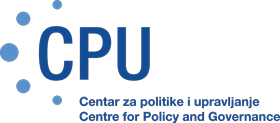
Centre for Policy and Governance, in cooperation with the FOD BiH (Open Society Fund Bosnia and Herzegovina), has started the implementation of the project "Encouraging sustainable and inclusive development in BiH through Circular Economy models", with the aim of promoting development opportunities and encouraging the use of business opportunities for the application of the circular economy model in BiH.
International financial institutions, as well as private investors, are paying more and more attention to green investments. By 2025, the European Investment Bank will invest over 50% of its resources in climate solutions and green activities, and completely stop financing fossil fuels and large airports. Nearly one-third of the World Bank Group's portfolio is invested in projects that have a positive impact on the climate, or other green initiatives. Finally, large global corporations such as Microsoft are adjusting their business to achieve a climate-neutral effect.
The EU Green Agreement, a new long-term EU development strategy adopted in 2020, which aims to make the EU economy carbon neutral by 2050, defines the circular economy as one of its priorities. In order to achieve the goals defined in the Green Agreement, the EU puts green transition policies at the top of its priorities, and all strategies, plans, investments and standards take into account the effects of these interventions on the environment. In this context, the Green Agenda for the Western Balkans has been initiated, which will have an increasingly important place in relations between the EU and EU candidate countries (both in terms of meeting standards and the use of EU funds and loans from European Development Banks and trade regimes).
The circular economy is a system built on reducing the use of natural resources, reusing products and resources, and recycling much of the waste. The current dominant model of industrial production is a linear model based on the concept of "take - make - use - discard". The circular economy is one of the key elements of all three pillars of sustainable development and green transition - economic, social and environmental. Bosnia and Herzegovina is lagging behind developed countries in transition processes. In our country, on the one hand, the level of pollution is quite high, and on the other hand, the utilization of waste through recycling is at a very low level. The transition to the circular economy model will have multiple positive effects on solving waste problems, creating value based on recycling waste materials, but also on innovating production processes, introducing new technologies, reducing raw material costs in final products, creating new jobs.
An important feature of this concept is that it can, to a large extent, be applied through smaller, mostly local initiatives, and smaller investments.
Centre for Policy and Governance has defined the basic goal of the project, which is reflected in the offer of initial argumentation and creation of knowledge base necessary for a successful acquaintance of the public and stakeholders, with the need to create a systemic framework that will enable effective application of circular economy principles. This would ensure the sustainable growth of the BiH economy, which will include members of marginalized groups, and make domestic products and services competitive in the EU market, as our most important trading partner.
The specific objectives of the project are:
1. To create analytical contents in the field of circular economy which aim to present the very concept adapted to the BiH context, as well as examples from the practice of business models of circular economy.
2. Inform key stakeholders about the very concept, benefits and business models of the circular economy.
3. Support the development of local capacities in the field of circular economy, and initiate the process of connecting and cooperating individuals and organizations active in this field.
Project duration: 12 months

